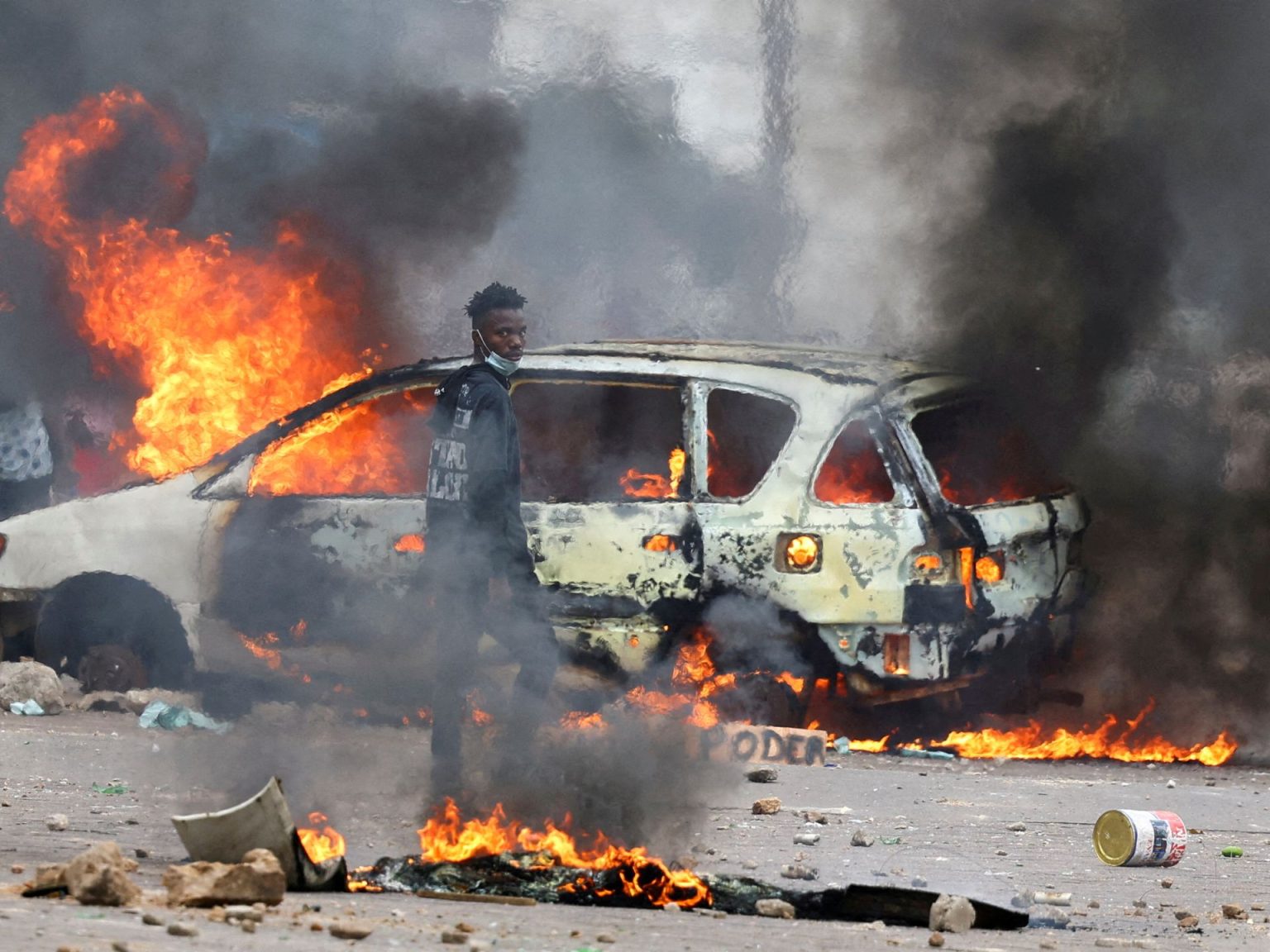Mozambique’s Uprising: A Generation Fights for Change Amidst Government Crackdowns
Mozambique, a southeastern African nation, is currently embroiled in a wave of protests sparked by a disputed election. These demonstrations represent a significant challenge to the decades-long rule of the Frelimo party, which has governed the country since its independence from Portugal in 1975. Thousands of Mozambicans are taking to the streets, defying violent government crackdowns, to demand an end to Frelimo’s dominance and a brighter future for their nation. This unrest isn’t merely about political power; it’s a generational struggle, with young Mozambicans demanding better economic opportunities, improved governance, and a greater say in their country’s destiny.
Decades of Discontent Fuel the Flames of Protest
The current protests are rooted in deep-seated grievances that have simmered beneath the surface of Mozambican society for years. While the disputed election serves as the immediate catalyst, the underlying causes are far more complex. Decades of Frelimo rule have been marked by allegations of corruption, economic mismanagement, and political repression. The country’s vast natural resources, including substantial gas reserves, have failed to translate into widespread prosperity, leaving many Mozambicans feeling marginalized and excluded from the benefits of economic growth. This sense of disenfranchisement, coupled with a lack of political freedoms and limited opportunities for advancement, has created a fertile ground for dissent.
A Youth-Led Movement Challenges the Status Quo
A key characteristic of the current protests is the prominent role played by young Mozambicans. This generation, which has come of age in a post-conflict Mozambique, holds different expectations and aspirations compared to their predecessors. They are less likely to be swayed by the liberation narrative that has long legitimized Frelimo’s rule. Having witnessed firsthand the shortcomings of the current political system, they are demanding greater accountability, transparency, and inclusivity. Their use of social media and other digital platforms to mobilize and organize demonstrations underscores their tech-savviness and determination to bypass traditional channels of communication.
Government Crackdowns Intensify as Protests Escalate
The Mozambican government’s response to the protests has been characterized by a heavy-handed approach. Security forces have been deployed to quell demonstrations, often resorting to excessive force, including tear gas, rubber bullets, and even live ammunition. Human rights organizations have documented numerous instances of arbitrary arrests, detentions, and abuses of protesters. This crackdown, rather than deterring the demonstrators, has further fueled their anger and resolve, highlighting the growing chasm between the government and the people it purports to represent.
The Future of Mozambique Hangs in the Balance
The ongoing protests in Mozambique represent a critical juncture in the country’s history. The outcome of this struggle will have far-reaching implications for the nation’s political landscape, economic development, and social fabric. Will the government heed the demands of its citizens and embark on a path of meaningful reform, or will it continue to cling to power through repression? The resilience and determination of the protesters suggest that they are unlikely to back down without achieving significant concessions.
The Need for Dialogue and Inclusive Governance
A peaceful resolution to the current crisis requires a commitment from both the government and the protesters to engage in constructive dialogue. The government must acknowledge the legitimacy of the grievances driving the unrest and demonstrate a willingness to address them through concrete actions. This includes ensuring free and fair elections, tackling corruption, promoting economic development that benefits all citizens, and respecting fundamental human rights. For their part, the protesters must maintain their commitment to non-violence and engage in peaceful means of expressing their demands. The international community also has a crucial role to play in supporting a peaceful transition and ensuring that the rights of all Mozambicans are protected. Only through dialogue, compromise, and a commitment to inclusive governance can Mozambique move forward and build a more just and prosperous future for all its people.

